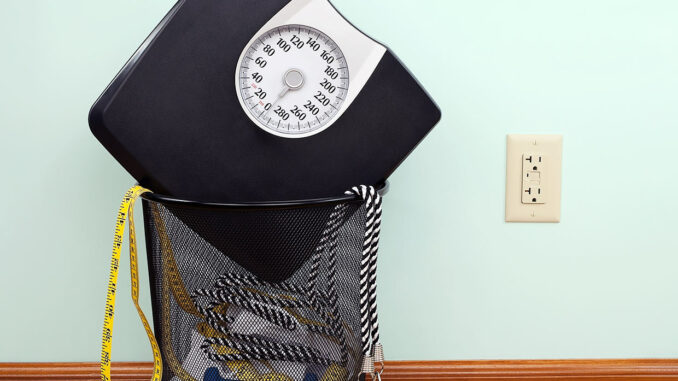
Introduction: Embarking on a journey towards health and fitness often begins with a desire to lose weight. While the scale can be a useful tool for measuring progress, it doesn’t tell the whole story. Tracking progress beyond scale weight loss is essential for gaining insight into the holistic changes happening in your body and overall well-being. By implementing a variety of tracking methods, you can celebrate non-scale victories and stay motivated on your journey towards a healthier lifestyle.
- Body Measurements: Measuring various parts of your body, such as waist circumference, hips, thighs, and arms, provides a more comprehensive view of your progress than scale weight alone. As you engage in regular exercise and adopt healthier eating habits, you may notice changes in your body composition, even if the number on the scale doesn’t change significantly. Keeping track of these measurements over time can help you gauge improvements in muscle tone, fat loss, and overall body shape.
- Progress Photos: Visual progress tracking through photographs can be a powerful motivator on your fitness journey. Taking photos of yourself from different angles and comparing them over time allows you to see changes in your physique that may not be apparent on the scale. While it’s important to focus on how you feel and function rather than just appearance, progress photos can provide tangible evidence of your hard work and dedication, boosting your confidence and commitment to your goals.
- Fitness Assessments: Regular fitness assessments can help you measure improvements in strength, endurance, flexibility, and cardiovascular fitness. Tracking key performance indicators, such as the number of push-ups, sit-ups, or squats you can perform, your mile run time, or how long you can hold a plank, allows you to set specific goals and track your progress over time. As you become fitter and stronger, you’ll notice improvements in your ability to perform these exercises, indicating positive changes in your overall fitness level.
- Energy Levels and Well-being: Monitoring changes in your energy levels, mood, and overall well-being provides valuable insight into the impact of your lifestyle choices on your health and quality of life. Pay attention to how you feel throughout the day, noting any improvements in energy, focus, and mood as you adopt healthier habits. Increased energy levels, better sleep quality, reduced stress, and improved mental clarity are all signs of progress that may not be reflected on the scale but are equally important indicators of your overall health and well-being.
- Health Markers and Biomarkers: Tracking changes in key health markers and biomarkers, such as blood pressure, cholesterol levels, blood sugar levels, and resting heart rate, can provide valuable information about your risk for chronic diseases and your overall health status. Regular check-ups with your healthcare provider and laboratory tests can help you monitor these markers and identify any areas for improvement. Making positive lifestyle changes, such as exercising regularly, eating a balanced diet, managing stress, and getting enough sleep, can lead to improvements in these markers over time, reducing your risk of developing chronic diseases and improving your overall health outcomes.
- Non-scale Victories: Celebrating non-scale victories, such as fitting into a smaller clothing size, receiving compliments on your appearance or fitness achievements, or mastering a new exercise or physical activity, can be incredibly rewarding and motivating. These small wins remind you of the progress you’ve made and reinforce your commitment to your health and fitness goals. Keep a journal or list of your non-scale victories to look back on during moments of doubt or frustration, serving as a reminder of how far you’ve come on your journey.
Conclusion: Tracking progress beyond scale weight loss is essential for gaining a holistic understanding of your health and fitness journey. By implementing a variety of tracking methods, such as body measurements, progress photos, fitness assessments, monitoring energy levels and well-being, tracking health markers and biomarkers, and celebrating non-scale victories, you can measure your progress in multiple dimensions and stay motivated on your path towards a healthier lifestyle. Remember that progress is not always linear, and small changes add up over time to create significant improvements in your overall health and well-being. Focus on making sustainable lifestyle changes and celebrate every victory, big or small, along the way.